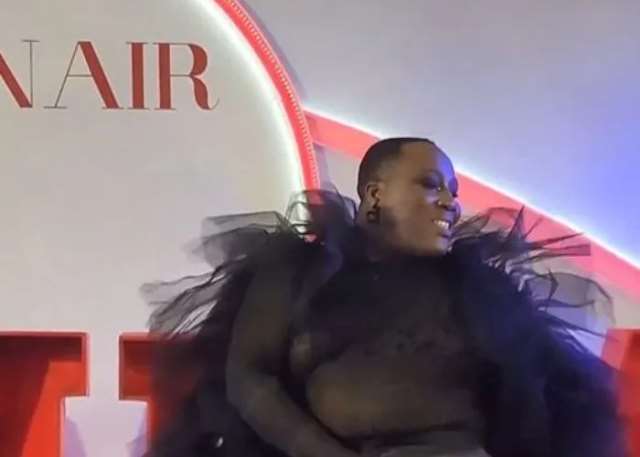The Ghanaian music scene recently witnessed a heated exchange between the music duo Keche and media personality Charlie Dior, sparking a debate about respect, criticism, and artistic expression. The controversy ignited following Dior’s comments on Accra FM, where he seemingly dismissed Keche’s advice and questioned their maturity, prompting a strong reaction from the duo. Keche, visibly upset by Dior’s remarks, responded with a pointed critique of Dior’s fashion sense and questioned his gender identity, adding a layer of personal attack to the professional disagreement. This escalation transformed the initial critique into a more personal and potentially damaging conflict, highlighting the sensitivities surrounding public image and reputation in the entertainment industry.
Keche’s response to Dior’s critique went beyond a simple rebuttal of his professional assessment. The duo’s comments regarding Dior’s fashion choices and gender expression injected a personal element into the disagreement, raising concerns about the appropriateness of such remarks. They questioned Dior’s right to critique their work based on his perceived fashion choices, essentially arguing that his personal style invalidated his professional opinion. This line of argument, while emotionally charged, potentially blurred the lines between professional critique and personal attack, further escalating the tension between the two parties and opening the door for a more personal and potentially damaging conflict.
The heart of the dispute revolves around the perceived disrespect shown by Dior towards Keche’s established position in the Ghanaian music industry. Keche emphasized their years of hard work and dedication to their craft, contrasting it with Dior’s perceived lack of experience and understanding of the music industry. They argued that someone who has not walked in their shoes, someone who hasn’t experienced the challenges and triumphs of building a successful music career, lacks the authority to critique their artistic endeavors. This perspective highlights the importance of experience and credibility in the entertainment world and the sensitivity artists feel towards criticism from individuals they perceive as outsiders.
The threat of legal action underscores the seriousness with which Keche views Dior’s comments. By suggesting they might pursue legal recourse, Keche signaled their unwillingness to tolerate what they perceive as unauthorized and damaging commentary on their career. This legal threat adds a new dimension to the conflict, transforming it from a public spat into a potential legal battle. It underscores the importance of carefully considered public statements, especially when those statements potentially impact an individual’s reputation and livelihood.
Despite the heated exchange, Keche reiterated their commitment to their music and their fans. They emphasized that their primary focus remains on producing quality music and entertaining their audience. This statement serves as an attempt to reassure their fanbase that despite the public disagreement, their artistic endeavors remain their top priority. It also attempts to frame the conflict as a necessary defense of their reputation and a distraction from their core mission of creating music.
This incident highlights the delicate balance between critique and respect within the entertainment industry. While constructive criticism can be valuable for artistic growth, it must be delivered with sensitivity and respect for the artist’s journey and accomplishments. Keche’s strong reaction underscores the importance of maintaining respectful dialogue, even in the face of disagreement. The threat of legal action serves as a reminder of the potential consequences of careless public statements, particularly in the age of social media and instant communication. The incident ultimately emphasizes the need for a more thoughtful and respectful approach to critiquing artistic work, even when opinions differ sharply. The focus, ideally, should remain on the art itself, rather than descending into personal attacks and public feuds.














